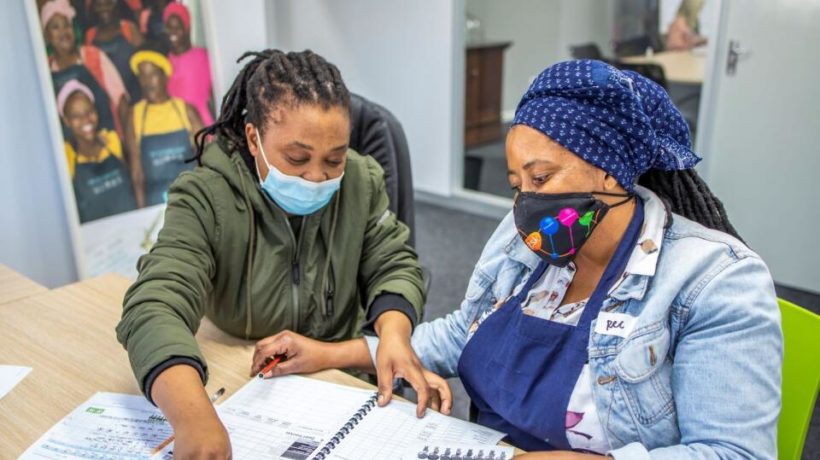The pandemic has not stopped the South African innovative Clothing Bank from making impact where it matters.
Incredibly, during these gloomy economic times, The Clothing Bank (TCB) has made it onto a list of global corporate-ready social enterprises along with similar organisations from 43 countries. Acumen, a leading non-profit impact investment fund, with the support of IKEA Social Entrepreneurship and partners, recently launched the Corporate-Ready: How Corporations and Social Enterprises Do Business Together to Drive Impact report, highlighting new survey data that demonstrates how social enterprises bring inclusion, sustainability, and social impact into corporate value chains.
Based on data gathered through a first-of-its-kind survey of more than 150 social impact oriented businesses worldwide, the report provides recommendations for how companies can use their procurement spending, estimated at $13 trillion globally, to source from social enterprises and advance their environmental and social commitments.
Tracey Gilmore is co-founder and COO of TCB, which creates self-employment and small business opportunities for unemployed individuals while also reducing retail chain waste. She said the group was delighted to feature among the world’s social enterprise leaders in the prestigious global report. “Our group’s success has always been built on power partnerships with corporate South Africa. We have a blueprint that can work globally. Our programmes create self-employment opportunities and address retail supply chain waste – it’s a win-win situation. We are thrilled that our work has been formally recognised in this highly respected global report.”
The group’s programmes, which include The Clothing Bank programme for unemployed mothers and The Appliance Bank programme for unemployed men, train individuals to run informal small businesses selling clothes and repairing and selling appliances donated to the group by national retailers. Beneficiaries of these programmes made R60 million’s worth of estimated profit in their micro-businesses in 2020.
Driving social impact through powerful partnerships
The ‘Corporate-Ready’ report, which includes a list of 100 examples of business partnerships between corporations and social enterprises, reveals how social enterprises meet corporate customer needs by offering product differentiation, cost savings, or increases in efficiency while delivering more jobs and better livelihoods for marginalised and vulnerable groups.
The research was supported by SAP, Ernst & Young LLP, Autodesk Foundation, Solidaridad, Porticus, Argidius, and 60 Decibels, and developed under the auspices of the World Economic Forum COVID Response Alliance for Social Entrepreneurs, a network of more than 85 organisations supporting the social enterprise ecosystem.
Yasmina Zaidman, Chief Partnerships Officer at Acumen, commented, “This research has shown us how the success of social enterprises and of corporations are intertwined. These corporate-ready social enterprises are helping corporations solve business challenges while driving major progress on their sustainability and inclusion goals.”
“There are still many hurdles the research identified, but also many examples of solutions and successes. It is our hope that the insights and inspirational cases will open opportunities for many and different types of partnerships, ultimately increasing support for the people who need it the most,” said Åsa Skogström Feldt, Managing Director, with IKEA Social Entrepreneurship.
Empowering men and women to become successful entrepreneurs
Unemployed men and women (mostly parents) join the two-year training programmes at TCB and quickly start their small business by trading, mainly in the informal sector, in the clothing or appliances that they buy from the group at discounted prices. They also learn life-long technical and business skills to ensure that their small businesses remain sustainable.
“We don’t believe you can learn business in a classroom. Our programmes are practical and experiential. We create a nurturing and supportive environment for our trainees. They are exposed to over 1000 hours of practical training and support, covering modules from money management, business skills, computer skills and life skills,” said Gilmore. In the Appliance Bank programme they also teach the technical skills needed to repair small appliances.
The programme approaches the development of women and men holistically. “We understand that you have to engage the head, the heart and the hands to create a healthy small business. We have an extensive support system that includes coaching, mentoring and counselling. The objective is that each person should earn at least R4 000 per month,” added Gilmore.
Gilmore noted that she hopes that organisations such as TCB, which have achieved global recognition in the report, would be able to grow their networks and partner with other corporates locally and globally. “Just as successful entrepreneurs solve many of the world’s problems through innovation, we believe that social enterprises hold enormous potential to partner with corporates to help them address their challenges while broadening their horizons to solutions that may lead to a positive impact on society.”
TCB’s operations include a national footprint providing over 1 000 previously unemployed South African men and women with the tools needed to create and sustain their micro-enterprises every year.







